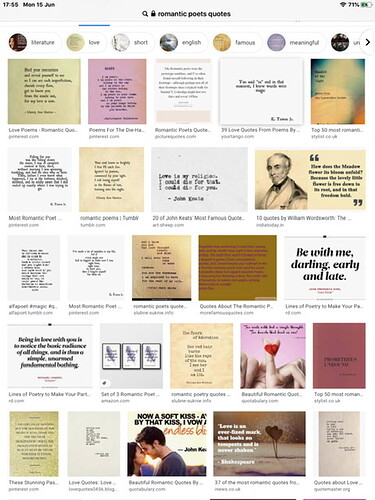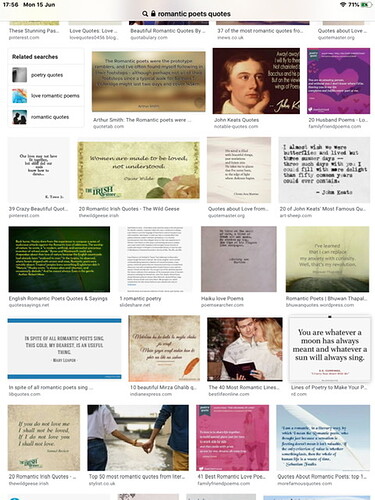Does anyone here like Romanticism as a movement?
The Romantic Rebellion was the push against the Enlightenment. It was saying that science and reason wasn’t the final word on Truth, that there’s more to us than just the appearance of matter. It stood for freedom, creative genius (emotional intuition). It was in the time of the American Revolution, the French Revolution and the industrial revolution, and Kant’s Copernicus revolution.
Kant is key, because his rebuttal to Hume, that there are a priori powers of the mind that organize thought and experience, the pure intuitions of space and time, showed there was something behind the curtains of the physical world. Yet, there was this world of phenomenon, and a world of noumenon, but he didn’t have a way to break from one barrier to the next into the noumenal realm. German idealism after that tackles it tooth and claw. I think it’s Hegel who applies the categories of the understanding to all of reality, and that’s him trying to break the noumenal realm, Schiller, another romantic said that “man is never so authentically himself as when at play.” This idea of play was essential to romanticism, and this might be that noumenal essential self for mankind.
That play is what we do when we are most free.
Rousseau was getting at this when he started the Social Contract with “Man is born free but everywhere in chains.” What was it like to be natural man, unfettered from society and science? This natural state is when he’d be free, and perhaps goes along with the idea of play.
I also think that the Romantics might have been the first modern depth psychologists, with Frankenstien, Faust, art of fuseli and Goya, Blake’s works, and Coleridge’s Rhime of the Ancient Marinere.
I think Nietzsche picked up on these works and was able to express this more philosophically, with his own flavor, still very different from analytic philosophy we get from ordinary philoophers, Nietzsche is kind of atmospheric after all…
Does anyone want to talk about ROmanticism, in any dimension?
I wrote 2 romantic works, and I now researching to put together a romantic anthology, so I’d like to express my ideas and keep them fresh and organic as they come. I’d love to debate romantic ideas and art! Please pay the devil advocate, or I will. ![]()
Romantic philosophers: (arguable!) Kant and Rouasseau begin to lay the ground work, Goethe, Most of the German Idealists like Schelling, Schiller, Hegel. These are the thinkers, though not the artists if you like any artists we can talk about them too! ![]()

